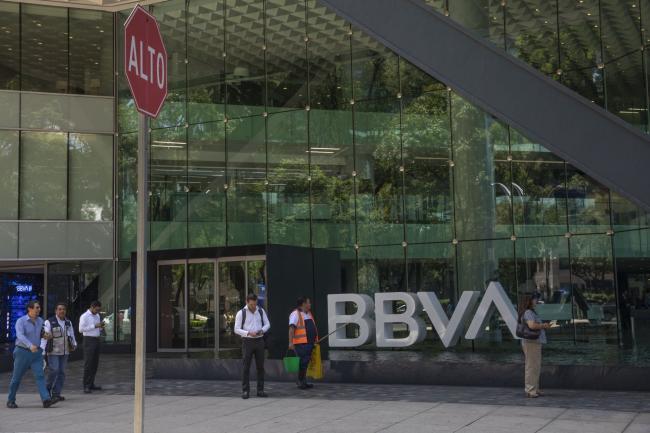(Bloomberg) -- Banco Bilbao Vizcaya Argentaria SA’s Mexican business shrugged off an economic slowdown in the country, helping the Spanish bank make up for the effect of ultra-low interest rates in Europe.
The Mexico unit posted its highest quarterly profit in at least a decade, helping BBVA (MC:BBVA) report group earnings that beat analyst estimates. That bucks a trend among Spanish banks that have been forced to reduce their forecasts as low interest rates persist.
BBVA and Banco Santander (MC:SAN) SA, Spain’s two largest banks, are riding out the low-rate environment in Europe by leaning on their more robust investments in Latin America, aided by faster economic growth and low levels of bank penetration, which allows more room to add customers.
While Mexico has long been the crown jewel of the group’s business, accounting for about 40% of profit, a potential recession could hurt earnings at a unit that has helped BBVA make up for sluggish growth in Spain and currency volatility in Turkey. Mexico’s economy shrank in April and May, the first two-month decline since the financial crisis.
The bank posted a strong result “despite a complex macroeconomic environment,” Chief Executive Officer Onur Genc said in a statement. “All of this is driven by our diversified business model.”
Still, BBVA’s outlook is clouded by potential interest rate cuts in its four largest markets.
The European Central Bank last week set the stage for another round of monetary stimulus in September to combat an economic slowdown in the euro area. Turkey’s new central bank delivered the biggest interest-rate cut in 17 years last week and is signaling the possibility of more cuts in the future.
In Mexico, President Andres Manuel Lopez Obrador said in a Bloomberg interview on Tuesday he’d like to see lower rates to “kick start the economy.” The U.S. Federal Reserve is widely expected to lower the federal funds rate on Wednesday by a quarter point and leave the door open for additional moves.
Genc acknowledged the cuts could have a short-term negative impact on BBVA’s business. The bank’s models show that a hypothetical 1 percentage point rate cut would mean a 9% drop in net interest income in Spain and the U.S. over 12 months and 2.4% in Mexico.
“The rate cuts will have an impact on the bottom line but we have many management levers to compensate for some of the decline in these numbers,” Genc said in a news conference.
Overshadowing the results is a mounting furor in Spain over allegations that BBVA hired a then-active police commissioner to spy on politicians and business rivals. A judge on Monday placed the bank under formal investigation.
Genc said the case has so far had no direct impact on business and reiterated that the bank is cooperating with the investigation.
Second-quarter net income gained 2.7% to 1.28 billion euros ($1.4 billion).
BBVA rose as much as 1.5% in Madrid trading and before reversing course and falling 1.2% to 4.6 euros as of 12:47 a.m. The stock is little changed this year, compared with a 1% decline of the STOXX Europe 600 Bank Price Index.
Here are some highlights from BBVA’s second-quarter report:
- The bank’s fully-loaded and phased in CET1 ratio was 11.5%, up 17bps
- Net interest income of 4.57 billion euros beat the consensus of 4.44 billion euros
- Fee income of 1.26 billion euros beat the consensus of 1.24 billion euros
- Profit rose 4.4% in Mexico to 660 million euros, aided by strong net interest income which rose 16% from a year earlier
- Earnings at the Spanish business rose 14% in spite of virtually flat core revenue, due mainly to a write-back in impairments of 102 million euros
- Profit in Turkey fell 18% to 140 million euros mainly due to a depreciation of the lira; net income rose 3% at constant prices
